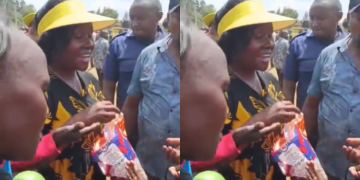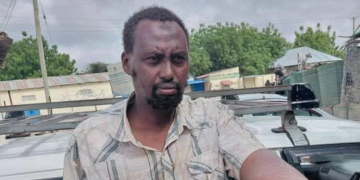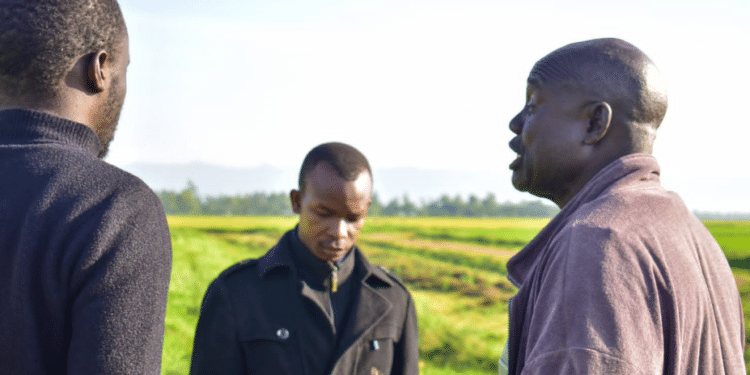On the night of September 8, 2022, Dismus Okello was buried at the age of 76. It was a painful death. A novel tragedy. Okello, one of the first rice farmers in Kano when the irrigation scheme was started in 1966 died of Malaria.
His family says they rushed him to Ahero County Hospital on the night of his death whereupon he succumbed upon arrival, because, as you possibly guessed, there was no proper medicine at the hospital. Alvin Ochieng, Okello’s second son, received me at Ahero junction on the moody morning of September 27, 2022. Ahero is 322 km from and north-west of Nairobi.
Ochieng, an ex-rice farmer and a graduate from Egerton University, would become my guide for five days as I traversed the length and breadth of the two rice irrigation schemes – Ahero and West Kano – to understand, or rather attempt to, the rice farming crisis in that region. Our first stop is their home. A humble homestead with a large, empty compound. His “simba” – the house a son builds in his father’s home when he comes of age – stands on the left side of Okello’s home – signifying that he is indeed the second eldest son.
According to the Luo tradition, the eldest son builds his simba on the right side of his father’s house while the second eldest does it on the left; the third son on the right, in that interchanging order. He changes into his gumboots, and we leave. As we walk past Okello’s house, the air is heavy with eerie silence, signifying bizarre sense of absence and unforgiving appetite of the authority of the world below. I notice what looks like a fresh grave. “It is my dad’s grave,” he says. I nod; the type that assures the bereaved that you share their grief; that you are in it together. “The state failed him,” he adds as he tucks in his pants in the gumboots. Those four words: “The state failed him” would form the operative thesis along which my interaction with Kano rice farmers would revolve.
Shem Omalla, 62, whom I met first, told me the National Irrigation Authority (NIA), formerly National Irrigation Board (NIB), has failed farmers. “NIA is a predatory body obsessed with making money out of the misery of farmers,” he said. Omalla inherited rice farming from his father in 1969. He says NIA leadership has consistently meddled in the affairs of the farmers by having its puppets elected at the cooperative. When I took up this issue the following day with the outgoing NIA regional coordinator Joel Tanui, he told me there is no cooperative for rice farmers in Kano in the first place; that farmers themselves bungled what was to serve as one. “It is interesting that there are farmers who are blaming NIA for the collapse of the cooperative society. First of all, there is no cooperative society, they messed it up,” Tanui told me. Omalla, who is allocated a two-hectare piece of land in Block M, says rice production in Ahero is unsustainable. “I cannot manage to take care of a big family, which is why I only have one child. The majority of these farmers do not even know the cost of blue band because that is a luxury to them” he says.

Photo: The Kenya Times
Steve Athembo, the multi-purpose cooperative society chairman, told me the moribund cooperative is broke and cannot accomplish its purpose. “We are facing serious financial challenges and interference from the NIA leadership,” he says. I met Athembo, a retired teacher and father of nine, at what is called dry area where rice paddies from the farm are dried before being milled. He was inspecting his paddies which he said were worth Sh800, 000, translating to a profit of Sh600, 000. It is important to mention at this point that Athembo is the only farmer out of the many that I met who mentioned profit in our conversation. When I asked him how he does it, he told me he has eight hectares of land under rice and is able to access loans from different banks, which makes production easier. But not many farmers can access loans. In fact, in Block M, out of the 21 portions, 17 have been leased by the original holders to farmers like Athembo who have the financial muscle to wrestle the capitalist monster that run the show in Ahero irrigation scheme.
“NIA has managed to paralyze farmers’ solidarity in collaboration with the Kisumu County Government for obvious reasons,” he blurts, anger written all over his face. When I asked him what he thinks should be done right, he said the government should allocate adequate money to society and provide modern milling machines. “We want the government to ensure cooperative societies particularly for rice farmers here in Ahero have adequate funds to help farmers in production and marketing,” he said.
Also Read: How It Happened: The Story of Covid-19 in Kenya
According to Athembo, the doomed multi-purpose cooperative society has 361 members, each struggling with their rice. For the last fifteen years, Barrack Ndalo, father of three, has been loyal to rice as a farmer even though the produce has not been loyal to him. His is the story of many a farmer in Kano: a story of heartbreak and exploitation facilitated by the miasma of greed nurtured with mischievous care by the powerful and privileged body of capitalists controlling the market. According to Barrack, politics has played a big role in the tragic story of Kano rice farmers.
“If the government can offer thriving local markets to farmers, rice farming could do well,” he told me. I met Barrack at his farm. He was in the process of selling his paddies to a buyer from Uganda. He told me he could not take more questions and instead I should look for him the following day. He had to be at the point where the sacks were being filled, because, as he put it, “I (he) don’t trust those people.” I watched him snake his way past a small crowd of buyers and sellers who had turned the tiny paths between the farms into an open-air market. His last words are a confession of a people grappling with, among other problems, trust; a representation of a country thriving on poverty of moral truth and social justice.
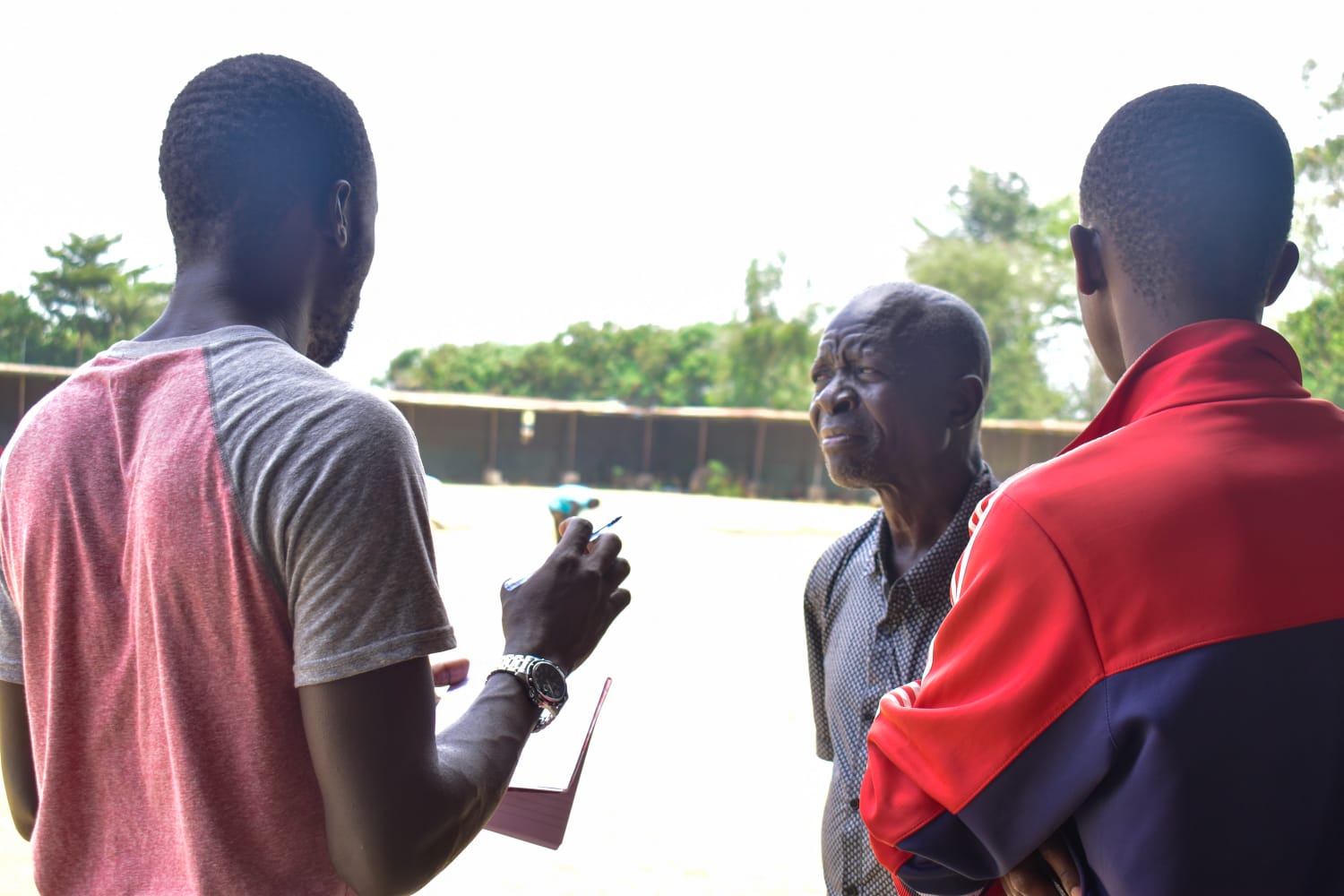
Photo : The Kenya Times
Gordon Oginga, a father of three, looked defeated and tired when I met him at Kogalo Rice Milers in Ahero town. He asked me if I was there to buy rice. I told him I would do so, but first I had a few questions for him. “Do you just sell rice, or do you also farm it,” I asked. “I farm rice. Been in it for 20 years,” he answered, more amiably than before, perhaps at the prospect of making his first sale, at 2 o’clock.
Like most farmers I met previously, Gordon complained that rice farming is not sustainable, and he is struggling to feed his family. He feels the government should do something about it. “Let the government provide us with a sustainable market. Unless it wants to tell us there are citizens who are more equal than others,” he charged. I know where that came from. You see, Luos have a grown sense of marginalization from the center of government development.
The majority feel that successive governments since independence have systemically marginalized them for political reasons. Whether they are right or wrong is a subject of debate.
At the dry land, the biggest drying and milling point in Ahero, farmers sell one kilo of un-milled rice at Sh51, the highest market price, being a harvesting season. An average of four trucks offloads at least 170 bags of mature paddies each weighing 90 kilos at the dry land, located behind the NIA regional offices. Ugandan marketers are the biggest buyers of Kano rice today. The possible closure of the border between Kenya and Uganda due to Ebola outbreak could affect the market significantly.
At Kogalo Rice Miller, farmers sell one sack of un-milled rice weighing 80kilos at Sh4, 500 while the miller sells a sack of milled rice at Sh5, 000. On a good day, the miller sells at least three sacks of rice and buys an average of five sacks of un-milled rice. At Kanyamunga Rice Millers, Christine Auma, a mother of three, told me rice farming in Ahero is likely to collapse “very soon”. “Ugandans have colonized the market here. We are seeing the end of rice farming in Ahero,” she lamented. She has farmed rice for five years and is considering “moving on”. “For instance, we will not mill even a single sack of paddies today,” she answered when I asked why there was not much going on at the site.
At Nyando Millers, 2kg of IR rice is sold at Sh310. IR, by the way, is the dominant rice brand in Ahero. Lucy Akoth who has worked at the facility for nine years told me there has been a sharp decrease over the years in the amount of rice paddies they receive from farmers. “The cost of production is high, that is why we are witnessing low yields. The government should intervene,” she stated.
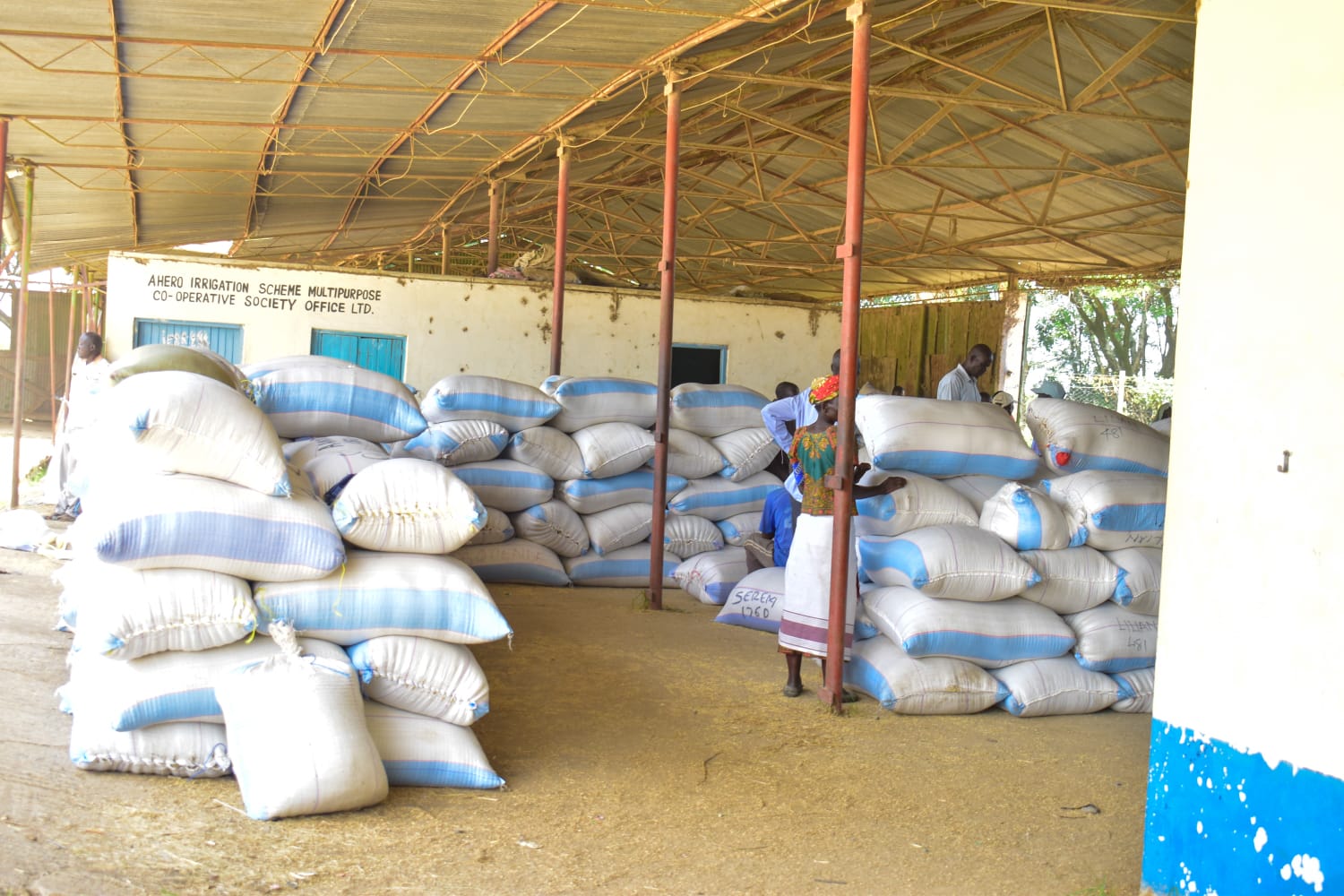
Having listened to the farmers’ grievances for three days, the logic of the story dictated that I hear from the NIA leadership. Joel Tanui, the outgoing regional coordinator, is a cool chap. He welcomed me into his office a few minutes past five o’clock on my fourth day in Ahero after unsuccessfully trying to meet him the previous two days. He was in the process of clearing, to take up a new role at the national government. For the last eight years, Tanui has been at the helm of what is one of the most important bodies in the story of rice farming in the country. When I told him farmers are saying bad things about him, he grinned easily. He told me Kano rice farmers are their own enemies. “One, they (farmers) have allowed clan politics to compromise their solidarity as a group; two, they have failed to elect competent leaders who can steer the cooperative in the right direction,” he explained. As a replacement to the defunct cooperative society, Tanui has overseen the formation of Ahero Irrigation Scheme Marketing Committee, an apex body comprising of representatives of about eight self-help groups. The committee is laying down the foundation for the establishment of a robust farmers’ cooperative society. When I asked him what he thinks could have led to the steady collapse of Kano rice, he said: “the main reason for the failure of rice farming in Ahero is dependency syndrome. Famers want everything to the done or the, by the government.”
According to Irrigation Act, the role of NIA includes: (a) developing and improving irrigation infrastructure for national or public schemes; (b) providing irrigation support services to private medium and smallholder schemes, in consultation and cooperation with county governments and other stakeholders; and (c) providing technical advisory services to irrigation schemes in design, construction supervision, administration, operation and maintenance under appropriate modalities, including agency contracts.
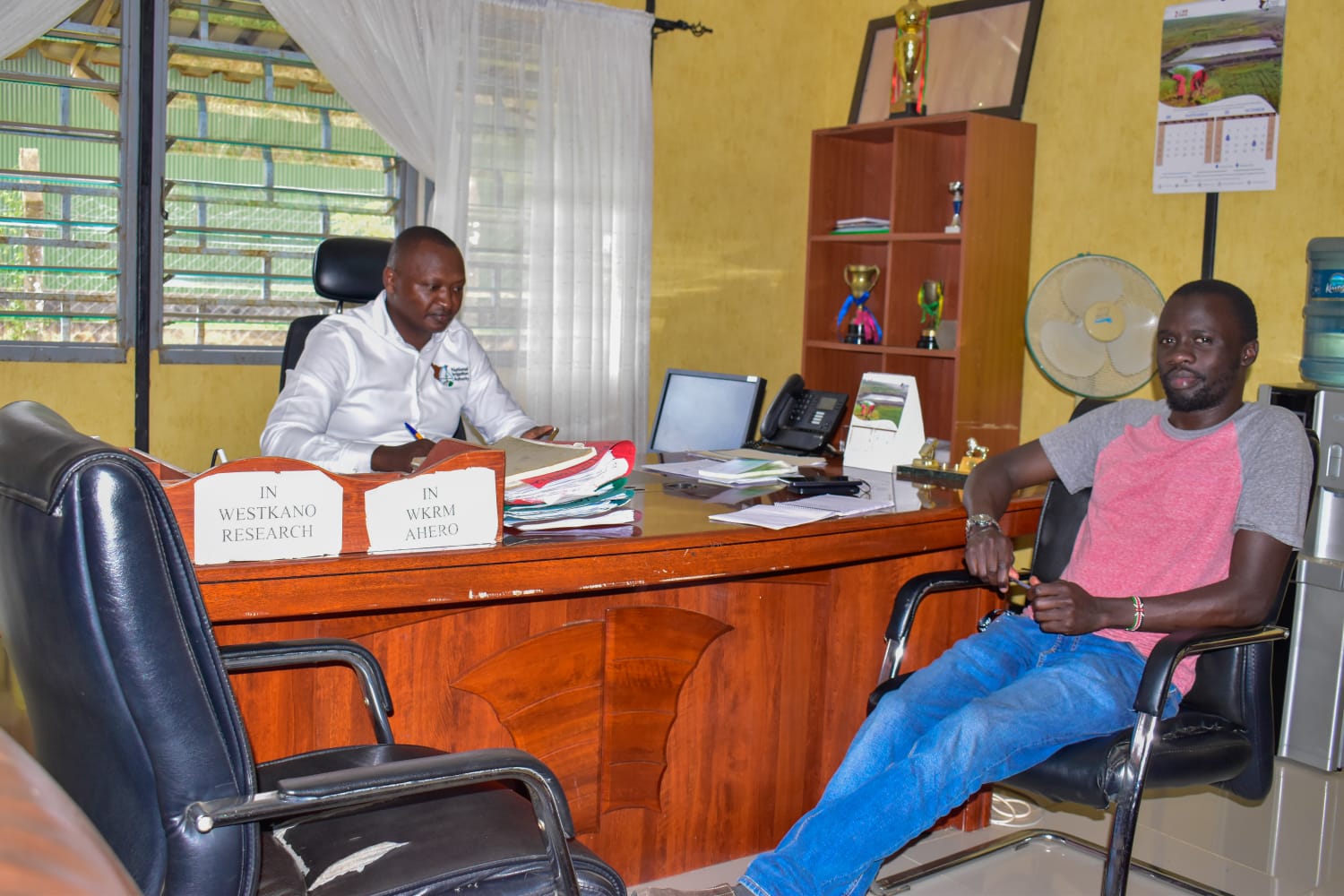
Photo: The Kenya Times
Neoliberalism, which started in political-economic theories that were formed in Germany and Austria in the late nineteenth and early twentieth centuries, has impact policy regimes in Kenya, the same way it has done, virtually world over.
In Germany, for instance, a historical school of economics had long been critical of the abstract nature of marginalist economics and the notion of equilibrium. Economists like Wilhelm Roscher and Gustav Schmoller thought that it was difficult to keep supply and demand ‘balanced’ in advanced capitalist economies. “Crises were probable, particularly when caused by lack of demand (underconsumption by underpaid workers),” Richard Peet notes in the Geography of Power.
Ludwig von Mises, the second generation of Austrian economist, is mostly considered the founder of neoliberalism. Von Mises was able to position his technical ability to make innovative contributions to monetary and banking theory within a broader social philosophy that idealized classical (nineteenth century) liberalism. “Responding to the rise of socialist ideas, like the Marxists, to the development of socialist parties in western Europe and eventually to the Soviet revolution in Russia, von Mises believed that socialist ideology was a menace to Western civilization, and that classical liberalism alone could uphold freedom,” Peet observes. Society, for thinkers like von Mises, originates not in some social contract but in the character of the individual. “Egoism is the basic law of society,” he argued.
Most thinkers argue that all social phenomena are spontaneous, unplanned outcomes of choices made by rational individuals. That an individual encounters social necessity, however, as when the division of labor increases productivity and makes social cooperation more profitable than self-sufficiency. Humans obey the fundamental laws of social cooperation because they are in the person’s rightly understood self-interest – obedience to law allows maximum individual freedom, and the pursuit of rightly understood self-interest also assures the highest attainable degree of general welfare. The story of rice farmers in Ahero is a legitimate case of a failed experiment of social cooperation.
“The point of departure of all liberalism lies in the thesis of the harmony of rightly understood interests of individuals,” von Mises believes. For him, the consumer interest counts above all other interests, and all interests are harmonized by market forces, establishing what he calls ‘consumer sovereignty’. A state may be necessary, but liberalism teaches that its power must be minimized and, especially, laissez-faire – a policy that advocates for minimal governmental interference in the economic affairs of individuals and society – should be left unhampered to work its miracles of development. This sociology is the foundation for von Mises’s economic theory of laissez-faire or the free market economy. Ahero rice farmers are victims of government interference in stabilization of rice prices. In February 2020, President Uhuru Kenyatta announced the establishment of a Sh500 million revolving fund for buying paddy from rice farmers. According to the Kenya National Bureau of Statistic’s Economic Survey, the country produced 112,000 tonnes of paddy in the 2017/18 season, of which 90,000 tonnes were produced in Mwea alone.
It is important to note that The Ministry of Agriculture does not have the authority to set rice prices. In Mwea, for instance, there is a state-linked mill, Mwea Rice Mills, which is jointly owned by a farmers’ cooperative and the National Irrigation Board.
Data shows that rice production in Kenya increased drastically during the first decade of independence: from 8,000 to 20,000 tonnes, accounting for a growth rate of 9.7 per cent per year. Between 70s and 80s, rice production fluctuated between 20,000 and 30,000 tonnes. At the dawn of libearlisation, in the early 90s, rice production had increased to an all-time high of 90,000 tonnes. By 2012, domestic production had grown by 12 per cent.
There are three price bands in the Kenyan market: high, middle and low. The high-end rice is currently priced at Sh150-170. This consists of domestic aromatic rice and some premium imported products such as Pakistani. Mwea pishori is the most expensive rice in the “high” category. The middle market products are in the range of Sh120 to Sh140. They include Tanzanian pishori and other non-premium Asian imports, mostly Pakistani and Indian basmati varieties. The bottom end, currently retailing at an average of Sh100 per kilo is served by most non-aromatic local rice, such as the famous “sindano” variety.
“Harmony, not conflict, exists between consumers and entrepreneurs, between entrepreneurs, managers and employees, and so on,” Peet adds. This philosophy, together with theories about the market process, money, interest rates and cycles, justifies von Mises’s conception of freedom and his advocacy of laissez-faire. Instructively, Laissez-faire prevails because it is scientifically demonstrated to be the best policy. Von Mises argued that socialism could not work in an advanced industrial economy. The basic problem, according to him, is that economic calculation is impossible in a socialist community. Where there is no market, there is no price system, and where there is no price system, there can be no economic calculation.
Exchange relations in productive goods can be established only on the basis of private property in the means of production. The problem of economic calculation, Von Mises argues, is the fundamental problem of socialism. For him, this demonstrated the devastating effects of the Marxian prohibition on scientific scrutiny of the working of a socialist economy. In addition, as Peet puts it: “To prove that economic calculation would be impossible in the socialist community is to prove also that socialism is impracticable. Everything brought forward in favour of socialism in thousands of writings and speeches, all the blood that had been spilt by the supporters of socialism, could not make it workable.”
The masses might ardently long for it, innumerable revolutions and wars might be fought for it, but it would never be realized. Every attempt to carry it out would lead to chaos that would quickly dissolve the society based upon the division of labour into small autarkic groups. And if socialism cannot work, neither can specific acts of government intervention in the market – what von Mises called ‘interventionism’. Rice production in Ahero was established on the theory of socialism but was designed to operate on the principles of capitalism.
Friedrich von Hayek, a student of von Mises, argued that people have little knowledge of the world beyond their immediate surroundings. This is the crucial ingredient that makes the price system work. Prices are not merely “rates of exchange between goods” but are also “a mechanism for communicating information”. Von Hayek saw the free price system not as a conscious invention (that is, intentionally designed by humans) but as a spontaneous order.
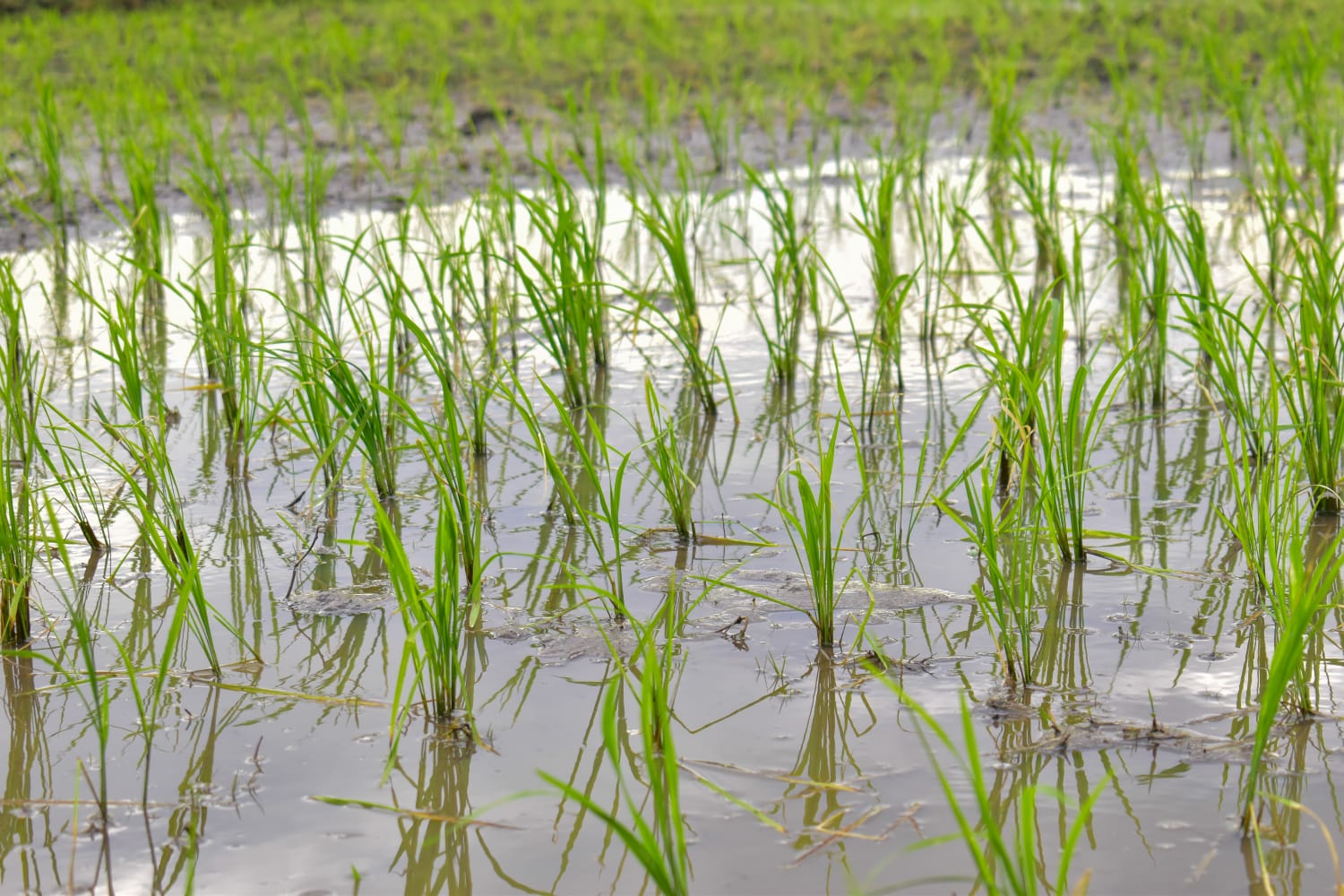
Photo : The Kenya Times
In a complex, uncertain environment, economic agents are not able to predict the consequences of their actions, and only the price system can coordinate the whole. The efficient use of resources, von Hayek claimed, can only be maintained by the price mechanism operating in free markets. The price mechanism synchronizes local and personal knowledge, allowing members of the society to achieve diverse, complicated ends through spontaneous self-organization. Kano rice farmers lack the benefits of collective and individual organization and a favorable operative market price for their produce. Their fate lies at the benevolence of capitalist Uganda buyers who determine the prices.
Price signals, Peet argues, are the only possible way of letting economic decision-makers communicate tacit knowledge or dispersed knowledge to each other, in order to solve the economic calculation problem. For von Hayek, the ‘fatal conceit’ of the socialists was that they believed this complex system could be designed by a planning system that gets the prices right. Von Hayek argued that in centrally planned economies, an individual or a select group of individuals must determine the distribution of resources, but that these planners will never have enough information to carry out this allocation reliably. The Kenyan society is highly unequal. Resources are concentrated around a limited section of the population.
“An economy can never be designed by social planning, but emerges spontaneously from a complex network of interactions among agents with limited knowledges,”Peet claims. Von Hayek attributed the birth of civilization to private property. In von Hayek’s view, the central role of the state should be restricted to maintaining the rule of law, with as little intervention as possible. The apparatus of the state should be used solely to secure the peace necessary for the functioning of a market coordinating free individuals. Von Hayek, as Peet reminds us, saw himself as a liberal in the English Whig tradition – the Whigs being a party in England in the seventeenth century, advocating popular rights and parliamentary power over the Crown and toleration to dissenters.
Liberalism is to Kano rice farmers what socialism was to Mises’s 19th century German society. While the options are limited, farmers have a choice to decide which buyer to engage, of course at the latter’s terms.
Classical liberalism supports the individual rights of property and freedom of contract. It advocates laissez-faire capitalism, meaning the removal of legal barriers to trade and cessation of government-imposed subsidy and monopoly. Economic liberals want little or no government regulation of the market.
Economic liberalism holds that the value of goods and services should be set by the unfettered choices of individuals – that is, market forces. Some would also allow market forces to act even in areas conventionally monopolized by governments, such as the provision of security, and courts. Economic liberalism thus accepts the economic inequality that arises from unequal bargaining positions as being the natural result of competition, so long as no coercion is used. Kenyan policy regime shifted to neoliberalism during the reign of President Uhuru Kenyatta, a position current President William Ruto has positioned himself to reverse.
Von Hayek thought that classical liberalism ‘derives from the discovery of a self-generating or spontaneous order in social affairs, an order which made it possible to utilize the knowledge and skill of all members of society to a much greater extent than would be possible in any order created by central direction, and the consequent desire to make as full use of these powerful spontaneous ordering forces as possible’. In The Road to Serfdom, von Hayek argued that both fascists and socialists believed that economic life should be ‘consciously directed’ and that economic planning should be substituted for the competitive system.
But to achieve their ends, planners had to create power of a magnitude never before known. Democracy was an obstacle to this suppression of freedom. Therefore, planning and democracy were antithetical. Von Hayek thought that concentrating power so it can be used in planning not merely transforms but heightens power. By uniting in the hands of a single body power formerly exercised independently by many, power is created in amounts infinitely greater than any that existed before – indeed, is so far reaching as almost to be different in kind. No one in competitive society can exercise even a fraction of the power possessed by a socialist planning board. Competition is the only system that can minimize the power exercised by one person over another. Project Kenya competes against its own people. It uses violence, coercion and deceit to advance its interest at the expense of the ordinary folks.
The power of a millionaire employer, as Peet submits, over the individual is less than that possessed by the smallest bureaucrat wielding the coercive power of the state, deciding how people are allowed to live and work. Indeed, a poorly paid unskilled workman in the USA, for von Hayek, was more free to shape his life than many an employer in Germany, or a much better-paid engineer or manager in the Soviet Union. He thought that his generation had forgotten that the system of private property is the most important guarantor of freedom. It is only because the control of the means of production is divided among many people, acting independently, that we as individuals can decide what to do with ourselves.
In the hands of private individuals, what is called economic power can be an instrument of coercion, yet it is never control over the whole life of a person. But when economic power is centralized as an instrument of political power it creates a degree of dependence scarcely distinguishable from slavery. Thus, for von Hayek, in a country where the sole employer is the state, opposition means death by slow starvation. Thus, what was promised as the Road to Freedom (socialist planning) was in fact the High Road to Servitude. Democracy embarking on a course of planning, with the goal described in vague term as ‘the general welfare’ through central planning, was like people committing themselves to taking a journey together without agreeing where they wanted to go. Drawing up an economic plan in this fashion was even less possible than, for instance, successfully planning a military campaign by democratic procedure.
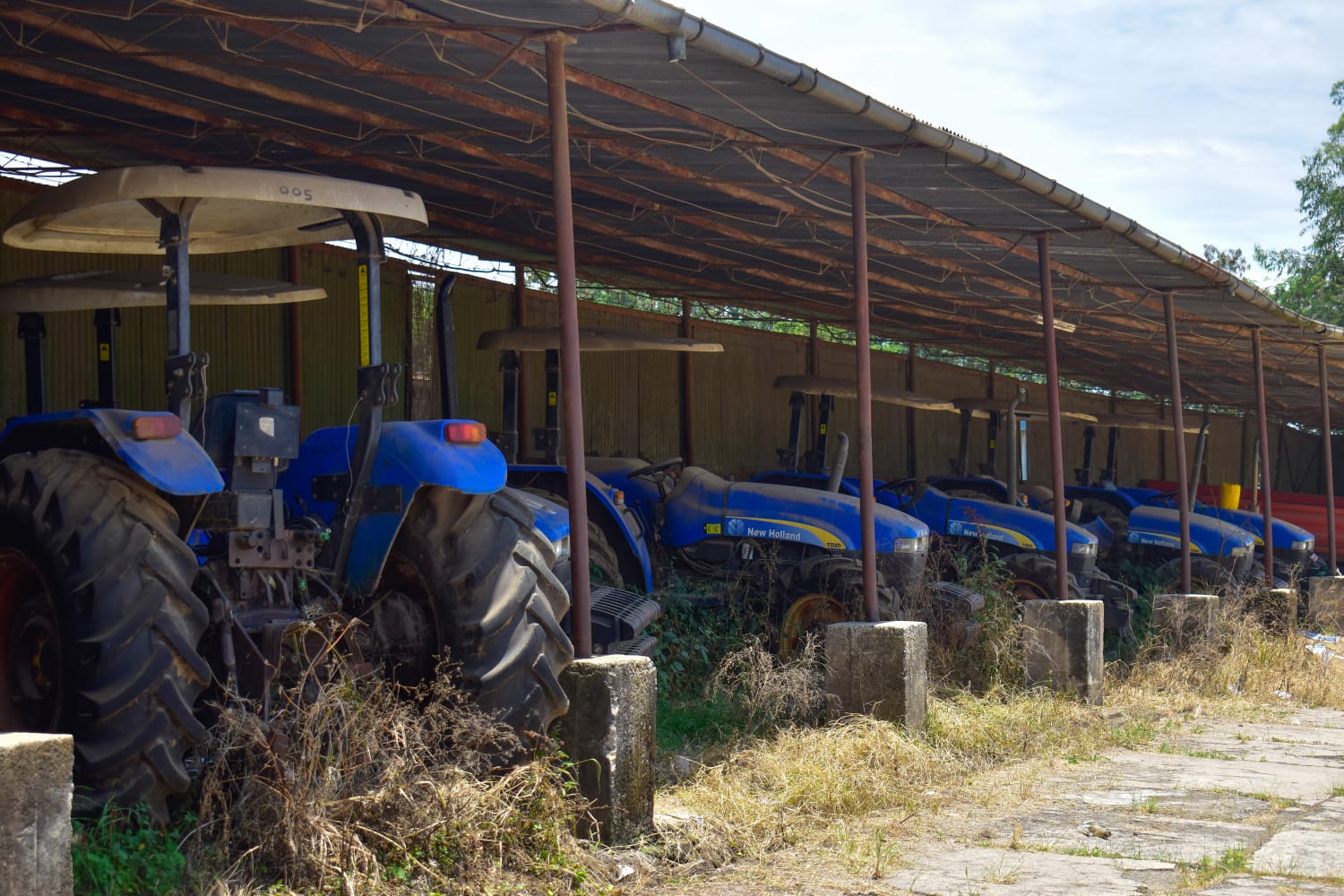
Photo: The Kenya Times
Peet goes head to argue that, as in strategy, it would become inevitable to have to delegate the task to experts. And even if, by this expedient, a democracy should succeed in planning every sector of economic activity, it would still have to face the problem of integrating these separate plans into a unitary whole. There would be a stronger and stronger demand that some board or single individual should be given power to act on the people’s behalf. The cry for an economic dictator is a characteristic stage in the movement towards planning.
Thus the legislative body would be reduced to choosing the persons to wield practically absolute power.
The whole system would tend towards that kind of dictatorship in which the head of the government is in position by popular vote, but where he has all the powers at his command to make certain that the vote will go in the direction he desires. Thus, for von Hayek, planning leads to dictatorship because dictatorship is the most effective instrument of coercion. There is no justification for the widespread belief that, so long as power is conferred by democratic procedure, it cannot be arbitrary. It is not the source of power which prevents it from being arbitrary; to be free from dictatorial qualities, the power must also be limited. A true ‘dictatorship of the proletariat’, even if democratic in form, if it undertook centrally to direct the economic system, would probably destroy personal freedom as completely as any autocracy has ever done. Kenyan state may not be blatantly dictatorial, but it cannot pass the test of a truly free society where truth and justice prevail.
Hence, the realization of the socialist programme means the destruction of freedom. Democratic socialism, the great utopia of the last few generations, was simply not achievable. And further collectivism means the end of truth. To make a totalitarian system function efficiently, it is not enough that everybody should be forced to work for the ends selected by those in control; it is essential that the people should come to regard these ends as their own. This is brought about by propaganda and by complete control of all sources of information. Hence, von Hayek concluded, the guiding principle in any attempt to create a world of free men must be this: a policy of freedom for the individual is the only truly progressive policy.
Milton Friedman, a leading theorist of the monetarist school of economic thought. He finds a close link between inflation and the money supply. Inflation, he says, can be controlled by limiting the amount of money in the national economy, a function performed in the USA by the Federal Reserve Bank. Friedman rejects fiscal policy as a tool of demand management and thinks that the government’s role in guiding the economy should be limited. This is set in a historical vision that ‘the two ideas of human freedom and economic freedom working together came to their greatest fruition in the United States.
While Americans are imbued with freedom as part of the very fabric of their being, they have strayed from this principle, forgetting that the greatest threat comes from the concentration of power in the hands of government, he says. Friedman argues that the Great Depression, or ‘Great Contraction’, had been caused by a financial shock whose duration and seriousness were magnified by a subsequent contraction in the money supply caused by misguided policies pursued by the directors of the Federal Reserve Bank. Rather than being a failure of the free enterprise system.
Friedman, who lectured in Chile during the military dictatorship of Augusto Pinochet, when thousands of leftists were being murdered by the state, argues that governments should not intervene in currency markets, an idea that became the basis of freely floating exchange rates. Following Friedman’s lead that ‘millions of able, active and vigorous people exist in every underdeveloped country’ and ‘require only a favorable environment to transform the face of their countries’, neoliberal policies aimed at creating ‘more competitive markets with brave, more innovative entrepreneurs’ took over a previously liberal, interventionist development economics in the ‘counter-revolution’ of the 1970s and early 1980s.
The ideas propagated by von Mises, von Hayek, Friedman and others in the Chicago school have become central notions in mainstream economics. As Palley points out, the two central principles of neoliberal economics – that ‘factors of production’ (labour and capital) get paid what they are worth and that free markets will not let factors go to waste – have been ‘extraordinarily influential’ since 1980. This influence passed through Friedman’s monetarism, prevalent during the 1980s, and the ‘new classical economics associated with Robert Lucas, also of the Chicago school, and a Nobel Prize winner. New classical economics restresses the neoclassical assumption that all economic agents are rational (utility-maximizing) and have rational expectations. Unemployment is the result of government intervention in this perfect, self-adjusting realm. Hence the state should refrain from intervening.
So mainstream economics ‘takes competitive markets as the norm’ and sees value-driven state interventions like the introduction of labour standards ‘as a distortion which will lead to misallocation and inefficiencies. Mainstream economics worships the market as the ultimate arbiter of the trajectory of economic development.
Nationally, rice production in Kenya has increased consistently in recent years largely because of an increase in acreage and improvements in yield. In Ahero, production has been dropping significantly in the recent years. To paraphrase noted economist David Ndii, “what is ailing rice farming in Ahero”? In analyzing the trouble facing rice farming in Mwea, Ndii argues: While farmers’ revenues have fallen sharply, prices have been relatively stable so, clearly, if there is a problem then it is one of production, and probably related to the recent massive expansion of the irrigation scheme.
As noted, domestic rice production has increased steadily in recent years. In the 2017/18 season, the most recent published data, Mwea produced 90,000 tonnes of paddy, up from 32,400 tonnes a decade before. The irrigation scheme in Mwea expanded by 40 per cent from 7,400 hectares (16,280 acres) to 10,500 ha (23 100 acres) a decade ago, and by another 12,450 ha (27,400 acres) in 2016/17 and 2017/18, bringing the total acreage to 23,000 ha (50,600 acres), more than three times the acreage a decade ago. In Ahero, production has shrunk from 40,000 acres to less than 20,000 acres in the last 20 years.
In Mwea, yields rose steadily from 4.4 tonnes a hectare (1.8t/acre or 20 90kg bags), reaching 6 tonnes a hectare in the 2012/13 season, to a high of 8.6 tonnes a hectare in the 2014/15 season with farmers’ revenues increasing three-fold from Sh1.3 billion to Sh3.9 billion in total, and from Sh180,000 to Sh370,000 per acre. In Ahero, yields have plummeted from 5.2 tonnes a hectare in 1970 to less than 2 tonnes a hectare in 2020. When poets and historians retreat to their secret chambers to write the last chapters of the Kano rice story, may they include the role that neoliberalism, capitalism and state negligence played in the tragedy.



